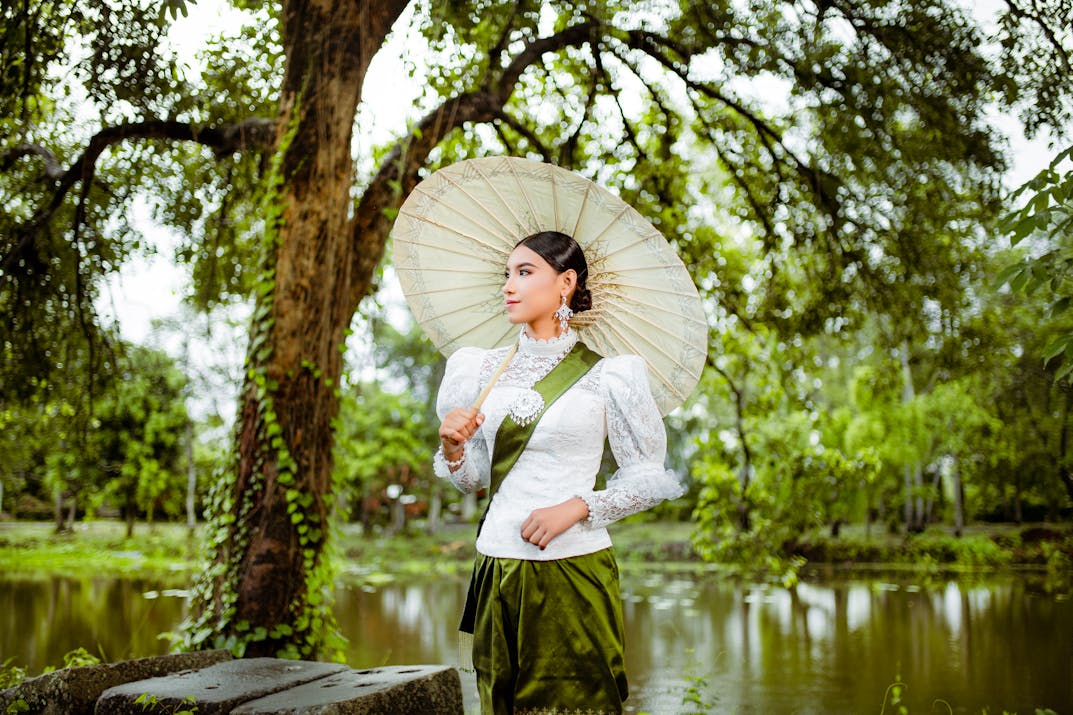In recent years, the fashion industry has seen a seismic shift towards sustainability, driven largely by the increasing awareness of environmental issues and the ethical implications of fast fashion. Millennials in the United Kingdom are leading this charge, demanding more from brands in terms of social responsibility and environmental stewardship. But which sustainable fashion brands have captured the hearts—and wallets—of UK Millennials? Let’s delve into the most popular ethical fashion brands among this influential demographic.
The Rise of Sustainable Fashion Among Millennials
Millennials, born between 1981 and 1996, have grown up in a world where social media and the internet have made information more accessible than ever. As the first generation to be fully digital, they have used their platforms to advocate for change and share information about pressing global issues, including climate change and ethical consumption. The fashion market has not been an exception to this shift.
Topic to read : What’s the Best Way to Style a Plaid Skirt for a Day in the Scottish Countryside?
The Impact of Social Media
Social media platforms like Instagram, Twitter, and TikTok have been pivotal in this transformation. Influencers and activists use these channels to highlight the environmental and social costs of fast fashion. By doing so, they encourage their followers to make more sustainable choices. This has created a ripple effect, pushing even the most established fashion brands to rethink their practices to meet the demands of eco-conscious consumers.
Household Expenditure Trends
Millennials are willing to invest in sustainable products, even if it means spending a little more. Household expenditure data shows a growing trend towards allocating more of their weekly household budget to ethical and eco-friendly products. This trend is not just a passing phase but a significant shift in consumer behavior. Millennials want their spending to reflect their values, and they are increasingly choosing brands that align with their principles.
Have you seen this : What Are the Essentials for a Chic Weekend Getaway to the Lake District?
Top Ethical Fashion Brands Among UK Millennials
Patagonia: A Pioneer in Sustainability
Patagonia has long been a trailblazer in the realm of sustainable fashion. Known for its durable outdoor clothing, the brand has a firm commitment to environmental responsibility. Patagonia has set the bar high with its use of recycled materials, ethical labor practices, and robust environmental activism. They are not just selling clothing; they are promoting a lifestyle centered around sustainability and responsible consumption.
What sets Patagonia apart is its transparency. The brand openly shares its sourcing practices and the steps it takes to minimize its environmental footprint. This level of openness has earned Patagonia a loyal following among UK Millennials who prioritize brands with genuine commitments to sustainability.
Stella McCartney: Luxury Meets Sustainability
When it comes to luxury fashion, Stella McCartney is a name that resonates strongly. As a leading figure in the sustainable fashion movement, McCartney has consistently championed eco-friendly practices in an industry often criticized for its lack of environmental responsibility. Her brand uses sustainable materials such as organic cotton, recycled fabrics, and vegan leather, offering a high-fashion alternative to traditional luxury brands.
Stella McCartney’s appeal lies in her ability to blend high-end fashion with sustainability effortlessly. This has made her brand particularly popular among Millennials who do not want to compromise on style while making ethical choices.
Allbirds: Comfortable and Eco-Friendly Footwear
Allbirds has gained a reputation for its comfortable, stylish, and eco-friendly footwear. The brand uses natural materials like merino wool and eucalyptus trees, ensuring that their products are both sustainable and high-quality. Allbirds has distinguished itself through its commitment to reducing its carbon footprint and promoting transparency in its supply chain.
The brand’s minimalist design and focus on comfort have struck a chord with Millennials. Allbirds’ shoes are not just a fashion statement but a declaration of environmental consciousness, making them a go-to choice for the eco-aware generation.
People Tree: Pioneering Fair Trade Fashion
People Tree is another brand that has made significant strides in sustainable fashion, especially in the UK market. Known for its commitment to Fair Trade, People Tree ensures that its products are ethically produced, from the cotton fields to the final garment. They offer a wide range of clothing, from casual wear to more formal options, all made from sustainable materials.
The brand’s focus on fair labor practices sets it apart. People Tree directly supports artisans in developing countries, ensuring that they receive fair wages and work in safe environments. This ethical approach has made it a favorite among UK Millennials who value both sustainability and social justice.
The Role of Fashion Brands in Promoting Sustainability
Transparency and Accountability
Transparency and accountability have become crucial factors for fashion brands aiming to win over Millennial consumers. Brands are increasingly expected to provide detailed information about their supply chains, sourcing practices, and environmental impacts. This transparency allows consumers to make informed decisions and choose brands that align with their values.
Many fashion brands have responded by publishing sustainability reports and setting clear environmental goals. These initiatives not only build trust but also encourage other brands in the industry to adopt similar practices, creating a ripple effect that benefits the entire market.
Innovation in Sustainable Materials
The development of sustainable materials is another area where fashion brands are making significant strides. From organic cotton and recycled polyester to innovative materials like mushroom leather and lab-grown silk, brands are exploring new ways to create stylish, eco-friendly clothing. This innovation is essential for reducing the industry’s environmental footprint and providing consumers with more sustainable options.
Brands that invest in research and development of sustainable materials are often rewarded with loyal customer bases who appreciate their commitment to innovation and sustainability. As these materials become more mainstream, they will likely become the norm rather than the exception, further transforming the fashion industry.
Ethical Labor Practices
Ethical labor practices are a cornerstone of sustainable fashion. Brands that prioritize fair wages, safe working conditions, and workers’ rights are not only ensuring the well-being of their employees but also gaining the trust of consumers. Millennials, in particular, are keenly aware of the social impacts of their purchases and prefer to support brands that treat their workers ethically.
Several brands have gone beyond just fair wages, investing in community development and education programs for their workers. These initiatives help build stronger communities and create a positive impact that extends beyond the fashion industry.
How Millennials Are Influencing the Fashion Industry
Consumer Activism
Millennials are not just passive consumers; they are active participants in shaping the market. Through social media, they can quickly spread information, organize boycotts, and promote brands that align with their values. This consumer activism has forced many fashion brands to reevaluate their practices and make meaningful changes.
Brands that ignore the demands of Millennial consumers risk facing backlash and losing market share. Those that listen and adapt, however, are often rewarded with increased loyalty and positive word-of-mouth, both of which are invaluable in today’s competitive market.
Demand for Circular Fashion
The concept of circular fashion is gaining traction, especially among Millennials. This approach involves designing products with their entire lifecycle in mind, from production to disposal. Brands are encouraged to create durable, high-quality items that can be repaired, reused, or recycled, minimizing waste and reducing environmental impact.
Several brands have embraced circular fashion by offering take-back programs, repair services, and recycling initiatives. These efforts resonate with Millennials, who are increasingly looking for ways to reduce their environmental footprint and make more sustainable choices.
The popularity of ethical fashion brands among UK Millennials is a clear indication of the shifting landscape in the fashion industry. Brands like Patagonia, Stella McCartney, Allbirds, and People Tree have successfully aligned themselves with the values of this influential demographic, offering stylish, sustainable, and ethically produced clothing options.
As Millennials continue to prioritize sustainability and ethical practices, their influence on the fashion market will only grow. Brands that adapt to these changing preferences and commit to transparency, innovation, and ethical labor practices will likely thrive in this new era of sustainable fashion.
In summary, the most popular ethical fashion brands among UK Millennials are those that successfully blend style with sustainability, providing consumers with choices that reflect their values and contribute to a more responsible fashion industry.











